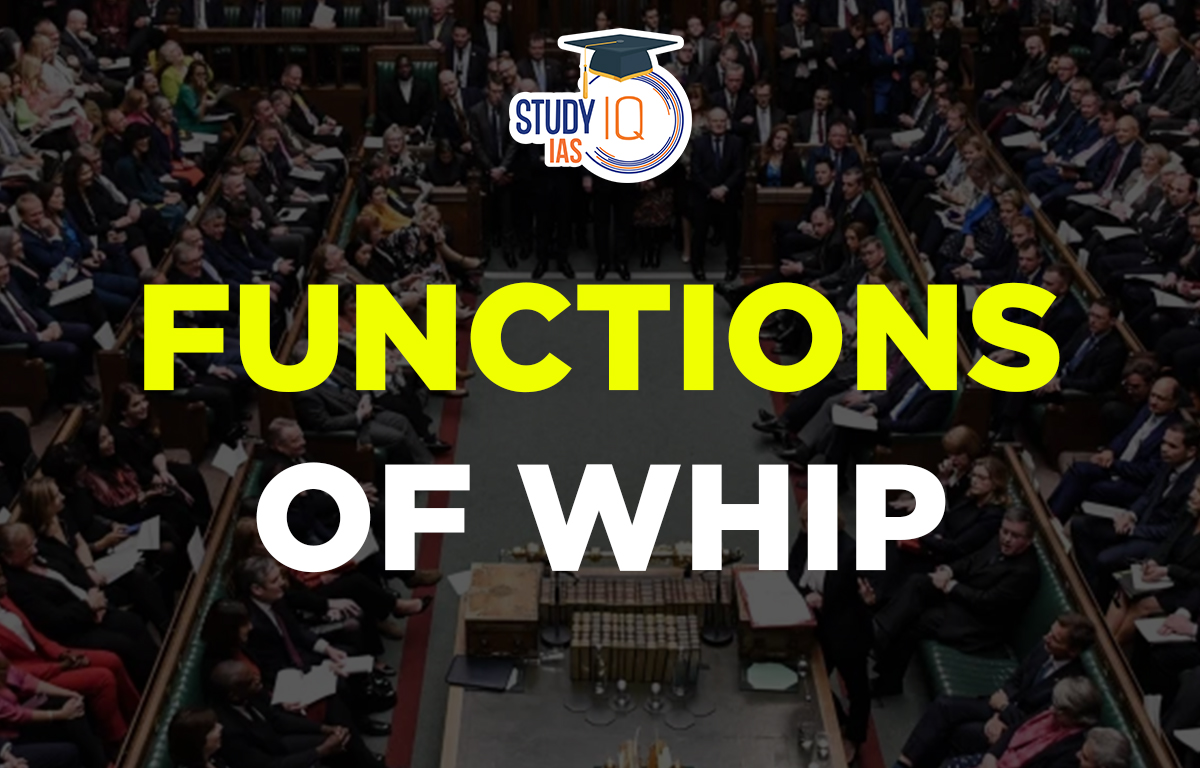Table of Contents
About Whip in the Parliamentary System
- A Whip is an official party member who is generally the party’s ‘enforcer’ inside the legislative assembly or parliament.
- Every political party, whether ruling or Opposition, has its own whip in the Parliament, who is appointed by the political party to serve as an assistant floor leader.
- The office of ‘whip’, is mentioned neither in the Constitution of India nor in the Rules of the House nor in a Parliamentary Statute. It is based on the conventions of the parliamentary government.
- India inherited the concept of the whip from the British parliamentary system.
- Parties appoint a senior member from among their House contingents to issue whips — this member is called a Chief Whip, and he/she is assisted by additional Whips.
Functions of Whip
- Charged with the responsibility of ensuring the attendance of his party members in large numbers and securing their support in favour of or against a particular issue.
- Regulating and Monitoring the party members’ behaviour in the Parliament.
- Charging Disciplinary action against the members, who fail to follow the directives given by the whip.
- Plays a crucial role in ensuring the smooth and efficient conduct of business on the floor of the House.
- Identification of signs of discontent among party members and informing the respective leaders of their party.
What happens when Whip is Disobeyed?
- A legislator may face disqualification proceedings if she/he disobeys the whip of the party unless the number of lawmakers defying the whip is 2/3rds of the party’s strength in the house.
- This Disqualification is decided by the speaker of the house.
Types of Whips
- One-line whip is issued to inform members of a party about a vote. It allows a member to abstain in case they decide not to follow the party line.
- Two-line whip is issued to direct the members to be present in the House at the time of voting.
- Three-line whip is issued to members directing them to vote as per the party line.
Limitations of Whip
- There are some cases such as Presidential elections where whips cannot direct a Member of Parliament (MP) or Member of the Legislative Assembly (MLA) to vote in a particular fashion.


 Daily Quiz 19 April 2025
Daily Quiz 19 April 2025
 Vehicle-to-Grid (V2G) Technology and its...
Vehicle-to-Grid (V2G) Technology and its...
 Waqf Act (Amendment) 2025: Key Highlight...
Waqf Act (Amendment) 2025: Key Highlight...





















